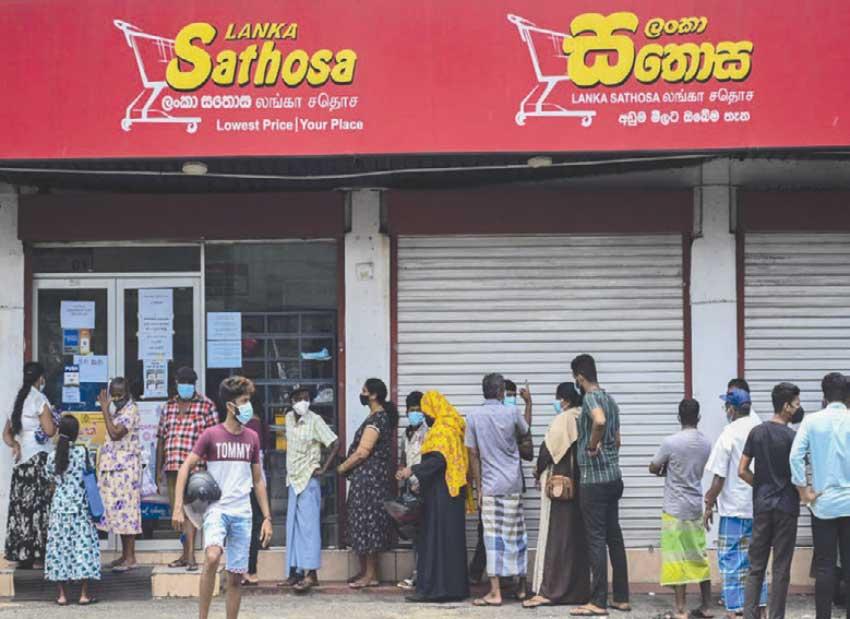04 Sep 2021 - {{hitsCtrl.values.hits}}

The government moving to implement harsh price controls will have detrimental effects on the economy and the people are likely to experience further difficulties as the food shortages could further worsen.
Colombo-based policy think tank Advocata Institute yesterday warned that excessive price controls would only make the food shortage scenario in the country worse and it is imperative for the government to look at adopting new measures, instead of “treating the symptoms rather than the disease”.
“Harsh enforcement of price controls could in turn create black markets, resulting in significant welfare losses in the form of a deterioration in product quality, elevate scarcities, disadvantaging the poor, who are less sophisticated and in the long run lead to higher prices, lower output, due to lower investment,” said the Advocata Institute.
As the price controls and administered prices have led to shortages and hoarding, the independent think tank highlighted that instead of addressing the problem at the root, the government is trying to control the symptoms.
The reasons for the price increase were attributed to import restrictions and tariffs, which have disrupted markets. The recent ban on fertiliser is also acknowledged to result in even further increases in the prices of vegetables and cereals over the approaching harvests.
According to Advocata, the previous attempts at price controls have not succeeded, as research carried out by the entity in 2018 has shown that better enforcement is not the solution, instead, the government should address the policy weaknesses that are the cause of the problem.
These restrictive policies have been compounded by the acute shortage of foreign currency, caused by the on-going balance of payments (BOP) crisis, said Advocata while pointing out that the lack of foreign exchange has imposed additional restrictions on imports, resulting in shortages causing prices to spike.
“While the increases in prices is a real concern, the causes are complex and are largely due to poor policies,” it said.
The institute further pointed out that attempting to negate the policy missteps in fiscal and monetary policy through trade policy is an untenable exercise. Doing so would impact economic efficiency, growth and productivity and would also lead to issues with economic distribution.
The balance of payments crisis arises not due to trade policy but due to the levels of aggregate demand in the economy, principally through consumption and investment, influenced by the prevailing fiscal and monetary policy, pointed out Advocata.
It elaborated that the tax cuts towards the end of 2019, fiscal dominance of monetary policy and non-pass through of global commodity prices through price controls and administered prices, have contributed towards excess import demand.
To iron out the issues, the policymakers were urged to address urgently the root cause of the current crisis by increasing tax revenues through a more progressive tax policy, that is by increasing the tax base for both direct and indirect taxes and reducing the tax gap through greater tax effort. Advocata added that it is best to use where possible well-targeted cash transfers to vulnerable segments of the population to improve affordability, instead of cutting taxing, imposing price control or using administered prices on utilities.
24 Nov 2024 18 minute ago
24 Nov 2024 3 hours ago
24 Nov 2024 3 hours ago
24 Nov 2024 4 hours ago
24 Nov 2024 9 hours ago